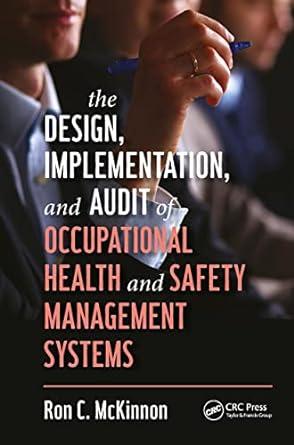Question
Ethics Case Study Emma Perez, a CPA, is the new controller for a small construction company, Milano Builders, that employs 75 people. The company specializes
Ethics Case Study
Emma Perez, a CPA, is the new controller for a small construction company, Milano Builders, that employs 75 people. The company specializes in custom homes greater than 3,500 square feet. The demand for large custom homes has significantly decreased because of the downturn in the economy. As a result of economic conditions their target market is dwindling, significantly affecting the companys finances. Milano entered into a contract with Serling Developers to build more than a dozen custom homes in a planned-community. Serling has not paid Milano for more than 105 days. The amount that Milano is trying to collect is significant. Because the amount has been outstanding for an extended period of time, being able to collect it is in doubt. Prior to year-end Emma discusses the outstanding receivable with the CEO. Emma believes that Serling will not last for another year. Emma believes that the allowance for uncollectible accounts must be adjusted to a value that is reasonably realizable. The CEO disagrees. The CEO is concerned that if the allowance adjustments are made, then Milano will not look financially sound. Additionally, the CEO is concerned about the opinion that the auditor may provide as a result of the allowance adjustment. Anything less than a clean opinion would jeopardize Milanos ability to secure a much-needed bank loan. If the company cannot secure the loan next year, then Milano might be out of business too. The CEO urges Emma to ignore the allowance adjustment. After all, it is not certain that the outstanding receivable will be uncollectible; Serling has not filed for bankruptcy. The CEO believes that Milano can just weather the storm and will recover from the economic downturn. I know business will pick up.
1. Interpretation Identify the problem/issue/question 2. Analysis Identify possible options/assumptions based on authoritative guidance 3. Evaluation Assess the validity of assumptions 4. Inference Identify advantages and disadvantages of alternatives 5. Explanation Provide recommendations. Resolve specific issue. 6. Self-regulation Self-monitor/Self-correct at each step.
Step by Step Solution
There are 3 Steps involved in it
Step: 1

Get Instant Access to Expert-Tailored Solutions
See step-by-step solutions with expert insights and AI powered tools for academic success
Step: 2

Step: 3

Ace Your Homework with AI
Get the answers you need in no time with our AI-driven, step-by-step assistance
Get Started


